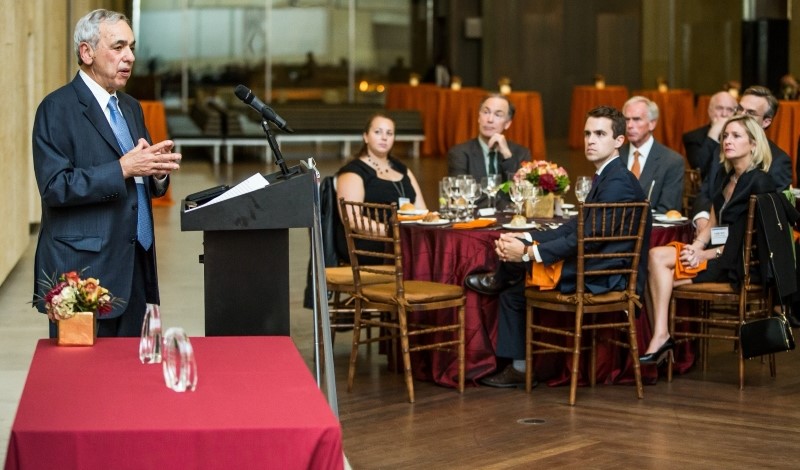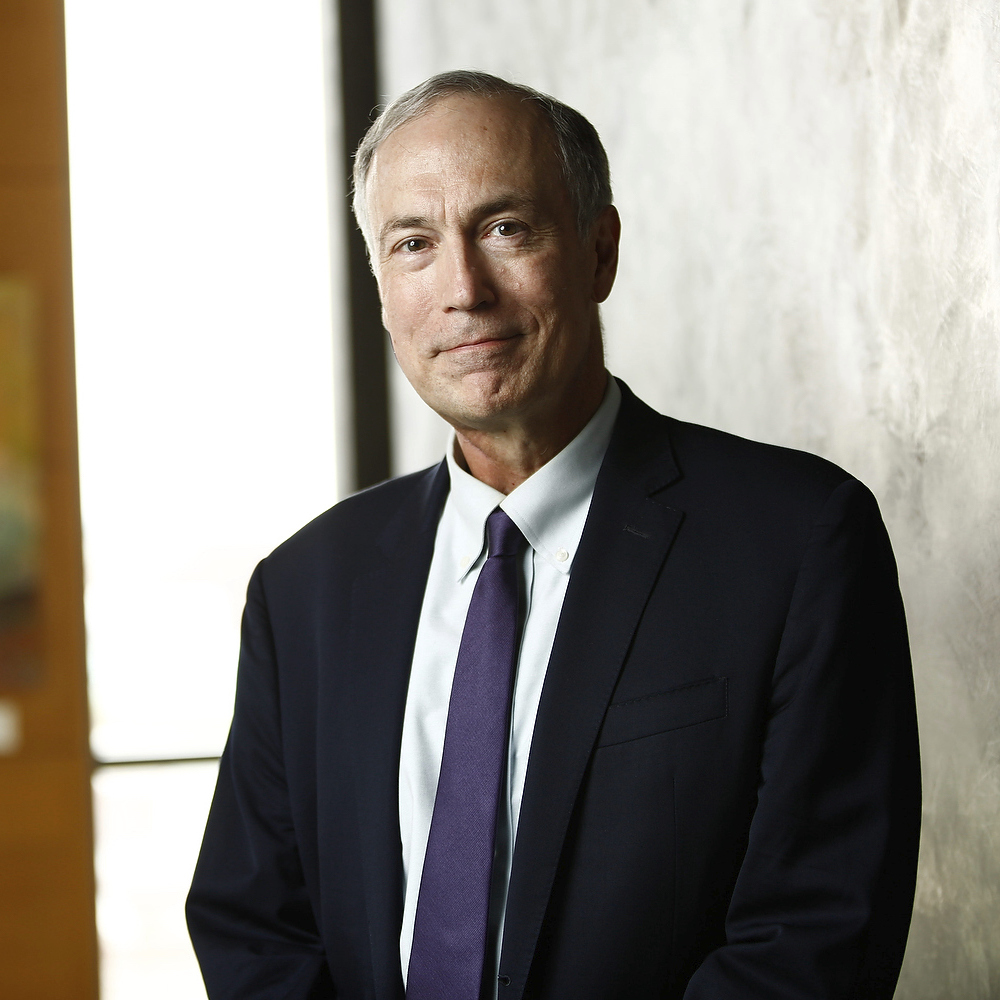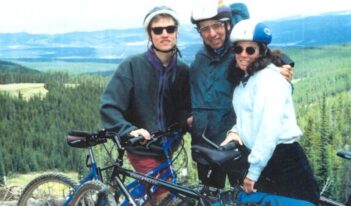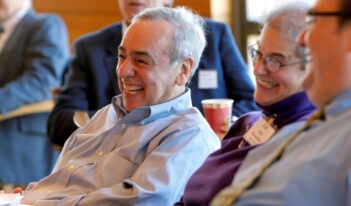
A proud “irrational economist,” Howard Kunreuther’s influence extended across academic disciplines.
My reflections celebrating the life of Howard Kunreuther are personal as well as academic. Along with Paul Kleindorfer, Howard was a stalwart, energetic, intellectual force at Wharton and Penn for fifty years. Both were intellectual mentors to me, even though they both were primarily economists, and I am primarily a lawyer. “Primarily” is key because our intellectual connection did not depend on a commitment to a single academic discipline, as characterizes many academic friendships. For Howard and Paul, as for me, what matters is the problem presented and the method used to think about the problem should follow its contours—not the other way around. There is perhaps too much method looking for problems these days.
Together, Howard and Paul led, as academic co-directors, the Wharton Risk Management and Decision Processes Center, which had been preeminent for decades in examining the general phenomenon of how we human beings are rational in making decisions about risks in the world, and yet we are often irrational too. The problem is that people’s actions do not always fit the models of rational individual behavior. Unlike many economists, Howard and Paul did not mind deviating from the standard models when a particular problem demanded it. If a traditional approach was not adequate to address the problem, then one should change the method or the model, and not just pretend there is no problem.
Howard was called an “irrational economist.” He relished the label and used it himself. Although not a psychologist by training, he was drawn to puzzles of human behavior that could only be described by the habits of our minds that subvert reason. From a strictly economic point of view, for example, it simply did not make sense that people who could easily afford to do so would not buy insurance to hedge certain kinds of serious risks of future events.
Floods, fires, health problems, industrial accidents, and the large challenge of climate change all fall into this category. I will always remember Howard’s excitement in saying of a new problem: “Yes, that’s because this is a low-probability, high-impact event!” His own methods—drawing mostly from psychology combined with economics—broke new ground in understanding how otherwise quite rational, intelligent people think and act irrationally in the face of many of these kinds of events: terrorist attacks, hurricanes and earthquakes, sudden market crashes. Reflecting on the comet-catastrophe movie Don’t Look Up, I smile, thinking that Howard should somehow get mentioned in the credits.
Howard’s broad perspective led to connections in law and politics—my primary disciplines—because humans use imperfect cognitive and behavioral patterns when assessing risks. This means that, unlike the assumptions that many economists and others may make about the nature of rationality in our world, people do not make decisions acting only according to reason and utility estimates, much as some might wish this to be the case in our post-Enlightenment world.
Human beings are driven by passions, not just calculations and deliberations. We have blindspots and make mistakes; “to err is human.” Evolution has bestowed on us the gift of rational thought, spurring our staggering material success as a species using science, mathematics, engineering, and economic theories of human behavior. At the same time, we have evolved to have strong primal desires, and parts of our brains focus entirely on other than rational priorities.
Irrationally, we fall in love. We feel fear and try to avoid the causes of it. Privileged with foreknowledge of our own eventual deaths, we spend a lot of time ignoring or denying to ourselves such an unpleasant fact. We have a “present bias” and many other cognitive biases. Attracted to certain tastes, we can often eat too much—or we can imbibe too much alcohol or other drugs that cause us to think, express ourselves, or act unreasonably. We get addicted, and we can be misled by charismatic salespeople or politicians with bad intentions. We fall prey to a good story that is really a con or a great falsehood. In all these examples, our human nature puts limits on how well we can hope to be rational and good on our own. Sometimes we need help, and at times this help can come in the forms of laws and government, as well as religious and educational institutions.
Psychologically, we imprint on our parents and are heavily influenced by our friends and teachers, co-workers and bosses. The best among us develop characters admirable not only for intellect but also courage and bravery, and the wisdom of experience and vision. These qualities of leadership no doubt helped small kinship groups to survive and prosper at the dawn of humanity and continue to do so today for large groups of people. Leaders with these qualities set examples for us, and we honor them as exemplary ancestors.
Howard Kunreuther is now such an ancestor. He had the discipline to become a great economist in terms of his own cognitive powers and work ethic, but the source of his true greatness was in how he stepped outside the bounds of his discipline to see and think about problems posed outside the lines. When the irrationalities of our world did not conform to pre-set models and assumptions, he understood that one must change the frame of analysis. The true complexity of the world must come first; otherwise, scholarship becomes detached and useless. How we human beings respond irrationally to various kinds of risk shows that our systems are imperfect. Merely pointing out the irrationality is usually not enough to cure the problem. We often need law and politics, because individually oriented economic markets cannot solve all social problems.
Because he traveled outside of the usual academic boundaries, Howard Kunreuther was able to serve as a mentor to colleagues outside of his discipline, including to me when I was a younger legal scholar. Howard saw that I sought to understand and find solutions to problems also of concern to him. In my case, these were environmental problems, and especially the climate crisis. Although we did not become co-authors, I wrote one paper with his academic partner Paul Kleindorfer, and Howard recruited me into the network of interdisciplinary scholars working on the general problems of what Ulrich Beck called our “risk society.” Howard invited me to events at what we called for short “the Risk Center.” The Risk Center’s many conferences and seminars greatly enhanced my education as a young Wharton faculty member. It introduced me to the power and impact of interdisciplinary work focused on social problems related to business at Wharton.
At the memorial event in honor of Howard and his academic accomplishments held at Wharton last November, the Nobel-winning economist Daniel Kahneman (who just died in March) pressed Howard’s long-time friend and co-author Mark Pauly to comment on whether Howard’s relentless focus on psychological and behavioral responses to risk affected the views of more traditional economists at Wharton and beyond. Mark himself was one economist with whom Howard had a wonderful lifelong dialogue, and they produced many co-authored papers, although Mark also allowed that some “fire-breathing Chicago economists” might not have been much persuaded by Howard’s persistent arguments.
It is true that one can never truly know what lasting impact one’s work in the academic world will have. That depends on what future generations will find persuasive and useful, as new challenges emerge and new ideas are either hatched or revived and reconfigured. We can only do our best work and try to have faith that some of our good ideas or influences will take hold. I believe Howard Kunreuther’s work will have long-term influence: if not in perpetual citations—for the hard truth is that very, very few of us will be mentioned by name decades or centuries in the future—then in the less easily quantifiable, more subtle influence that researchers and teachers can have in their interactions with colleagues, policymakers, and students.
Going forward, I will try to emulate Howard’s example in his infectious love for attacking the most important life-and-death kinds of problems and then bravely crossing interdisciplinary bridges to find solutions. I will try to emulate him, too, in reaching out to mentor younger scholars, including those who may be outside of my own institutional and disciplinary boundaries, not only because some, including Howard, did so for me, but because the next generation always forges the next links in the long chain of human civilization.
This essay is part of a series celebrating the life and scholarship of Howard Kunreuther, titled “Commemorating Howard Kunreuther.”




